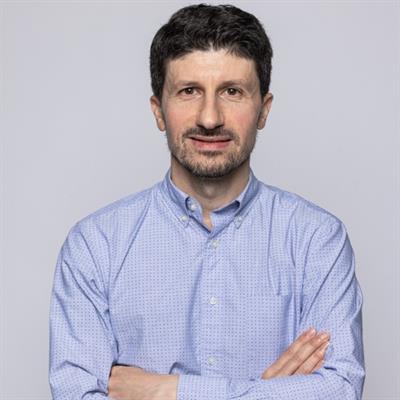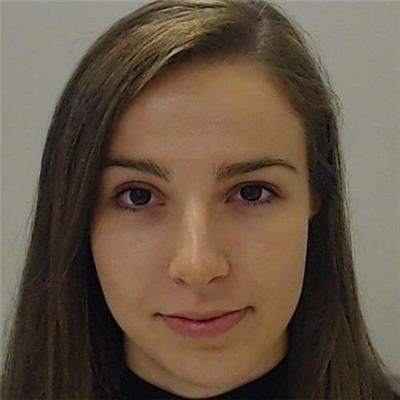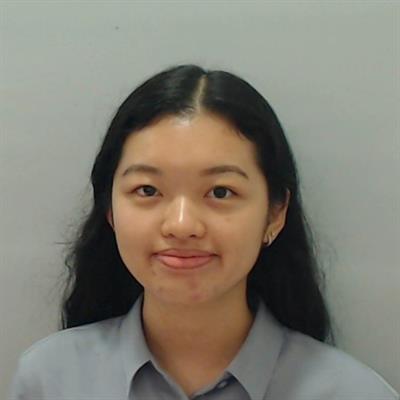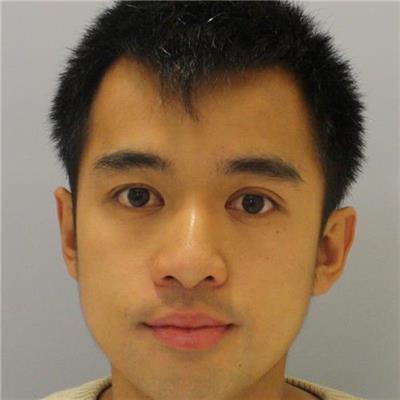Vaccine Immunology
Using immunology to identify optimal vaccination strategies in children living in high-risk settings.
The Vaccine Immunology group conducts research to better understand the human immune response to childhood vaccines and infections. Our focus is aimed at using immunology to identify optimal vaccination strategies in high-risk settings and ultimately to improve child health through improved access to vaccines in resource-limited settings.
Our group is led by Associate Professor Paul Licciardi who has more than 15 years of experience in examining immune responses in children (and adults) using sophisticated immunological approaches as part of large clinical trials.
The group has expertise in pneumococcal conjugate vaccines (PCVs), human papillomavirus vaccines (HPV), COVID-19 vaccines and respiratory syncytial virus infections. These vaccines are very expensive and are not widely available in many parts of the world. We are particularly interested in how we can best use these vaccines to protect our most vulnerable children, including those born preterm, those with malnutrition, those who are immunocompromised and more broadly, those who live in high disease burden settings.
Our research is designed to answer important questions related to vaccination strategies, including optimal vaccination schedules, duration of protection, identifying correlates of protection and biomarkers of severe disease. We utilise a range of immunological approaches to study antibody, B cell and T cell responses with the overall aim of improving access to these life-saving vaccines. We work with national and international research groups, governments and key stakeholders to improve vaccine access.
Group Leaders

Group Members






Pneumococcal vaccine research
Evaluating the immunogenicity of reduced dose pneumococcal conjugate vaccination (PCV)
We have completed two large randomised controlled trials (RCTs) in Vietnam and currently completing an RCT in The Gambia examining the immune response to PCV vaccination among infants. These studies compare different PCV schedules (the number and timing of doses given) in their first year of life. These studies aim to comprehensively examine the PCV response in these infants using a combination of functional antibody assays, flow cytometry and Elispot to elucidate the optimal pneumococcal vaccine schedule to use.
Optimal PCV vaccination in children with malnutrition
This is a new RCT to determine the best time to vaccinate a child who is malnourished and admitted to hospital with pneumonia. Malnourished children at a higher risk of developing pneumonia, even after recovery. This RCT will define the optimal vaccination schedule (on admission or discharge from hospital) in a very high-risk population. This study is based in Timor-Leste.
D-kids study – vitamin D supplementation RCT among Indigenous Australians
This RCT examines the potential beneficial role of vitamin D in protecting infants against acute respiratory infections (ARI) in the first year of life. This is based in the Northern Territory (collaboration with Menzies) and will undertake sophisticated immunological studies at Murdoch Children’s Research Institute to determine whether vitamin D supplementation can enhance immunity in the child, improve vaccine response to PCV and prevent the development of ARIs.
HPV vaccine research
Mechanisms of protection following single dose HPV vaccination
A single dose of HPV vaccination has recently been added to the World Health Organization (WHO) recommendation for girls under 20 years of age. In 2015, we conducted a study in Fiji to examine the duration of immune protection following a single dose of HPV vaccine, which has since been very influential globally. We are now conducting a series of studies in Fiji and Mongolia to understand how a single dose of HPV vaccine can provide long-term protection using modern immunological approaches.
HPV vaccination of high-risk groups
A key question in the field of HPV research is whether the vaccine is effective in high-risk groups who are exposed to HPV. We are conducting a pilot study in Vietnam to determine the immunogenicity and impact of one or three doses of HPV vaccine in female sex workers (who are 18 years old) to answer this question. Other high-risk groups we plan to examine include HIV-infected children.
COVID-19 vaccine research
Immune response to SARS-CoV-2 infection and vaccination in children
Since 2020, we have been actively involved in studies to examine the immune response of healthy children who were infected with SARS-CoV-2 as part of a household transmission study at The Royal Children’s Hospital (termed FFX). Our COVID-19 vaccine research addresses important questions comparing the immune response of children compared to adults, duration of immunity, vaccine response and hybrid immunity.
Immune response following COVID-19 vaccination in immunocompromised children
We are undertaking immunological studies to assess the magnitude and breadth of antibody, B and T cells responses of immunocompromised children to COVID-19 vaccination. This study is funded by the Australian Medical Research Future Fund (MRFF) in collaboration with Monash University.
Immunogenicity of COVID-19 booster vaccination in healthy adults
This research program, funded by CEPI, comprises three different RCTs conducted in Melbourne, Australia and Indonesia to evaluate different booster vaccination programs. Each RCT is unique and has been designed to determine the optimal vaccination program in each setting. We are undertaking complex antibody and T-cell assays to comprehensively examine the duration of protection following a third or fourth dose of the COVID-19 vaccine.
Respiratory Syncytial Virus (RSV) research
CAMEO study – immune responses in children hospitalised with severe respiratory syncytial virus (RSV) disease
Infections with RSV can lead to hospitalisation in children less than two years of age. Very little is known about the immune response in these children. We are leading an immunological study of children admitted to The Royal Children’s Hospital with severe RSV disease and examining their immune response during their hospital stay. This information will be critical to help define biomarkers of severe disease and inform decisions about how best to protect these infants in the future.
Immune response to RSV in preterm infants
Preterm infants are at high risk for RSV disease yet our understanding of the immune basis of this risk is poor. We have conducted a cohort study in Vietnam examining the cord blood of preterm and term-born children to identify signatures of preterm immunity to RSV. This will help identify which infants will benefit from early therapeutic intervention and prevention strategies.
Funding
National Health and Medical Research Council (NHMRC)
Medical Research Future Fund (MRFF)
CEPI
Bill and Melinda Gates Foundation
UK Medical Research Council
Collaborations
Menzies School of Health Research
Peter Doherty Institute of Infection and Immunity
Monash University
WEHI
University of Queensland
The London School of Hygiene & Tropical Medicine (LSHTM)
Oxford Vaccine Group
Pasteur Institute, HCMC, Vietnam
National Institute of Hygiene and Epidemiology (NIHE), Hanoi, Vietnam
SICRES, Thailand
NCCD, Mongolia
Temple B, Tran HP, Dai VTT, Smith-Vaughan H; VPT-II Collaborator Group; Licciardi PV, Satzke C, Nguyen TV, Mulholland K. Efficacy against pneumococcal carriage and the immunogenicity of reduced-dose (0 + 1 and 1 + 1) PCV10 and PCV13 schedules in Ho Chi Minh City, Viet Nam: a parallel, single-blind, randomised controlled trial. Lancet Infect Dis. 2023 Apr 13:S1473-3099(23)00061-0. doi: 10.1016/S1473-3099(23)00061-0.
Toh ZQ, Mazarakis N, Nguyen J, Higgins RA, Anderson J, Do LAH, Burgner DP, Curtis N, Steer AC, Mulholland K, Crawford NW, Tosif S, Licciardi PV. Comparison of antibody responses to SARS-CoV-2 variants in Australian children. Nat Commun. 2022 Nov 23;13(1):7185. doi: 10.1038/s41467-022-34983-2.
Toh ZQ, Anderson J, Mazarakis N, Neeland M, Higgins RA, Rautenbacher K, Dohle K, Nguyen J, Overmars I, Donato C, Sarkar S, Clifford V, Daley A, Nicholson S, Mordant FL, Subbarao K, Burgner DP, Curtis N, Bines JE, McNab S, Steer AC, Mulholland K, Tosif S, Crawford NW, Pellicci DG, Do LAH, Licciardi PV. Comparison of Seroconversion in Children and Adults With Mild COVID-19. JAMA Netw Open. 2022 Mar 1;5(3):e221313. doi: 10.1001/jamanetworkopen.2022.1313.
Licciardi PV, Temple B, Dai VTT, Toan NT, Uyen D, Nguyen CD, Phan TV, Bright K, Marimla RA, Balloch A, Huu TN, Mulholland K. Immunogenicity of alternative ten-valent pneumococcal conjugate vaccine schedules in infants in Ho Chi Minh City, Vietnam: results from a single-blind, parallel-group, open-label, randomised, controlled trial. Lancet Infect Dis. 2021 Oct;21(10):1415-1428. doi: 10.1016/S1473-3099(20)30775-1. Epub 2021 Jun 23.
Toh ZQ, Russell FM, Reyburn R, Fong J, Tuivaga E, Ratu T, Nguyen CD, Devi R, Kama M, Matanitobua S, Tabrizi SN, Garland SM, Sinha R, Frazer I, Tikoduadua L, Kado J, Rafai E, Mulholland EK, Licciardi PV. Sustained Antibody Responses 6 Years Following 1, 2, or 3 Doses of Quadrivalent Human Papillomavirus (HPV) Vaccine in Adolescent Fijian Girls, and Subsequent Responses to a Single Dose of Bivalent HPV Vaccine: A Prospective Cohort Study. Clin Infect Dis. 2017 Apr 1;64(7):852-859. doi: 10.1093/cid/ciw865.
